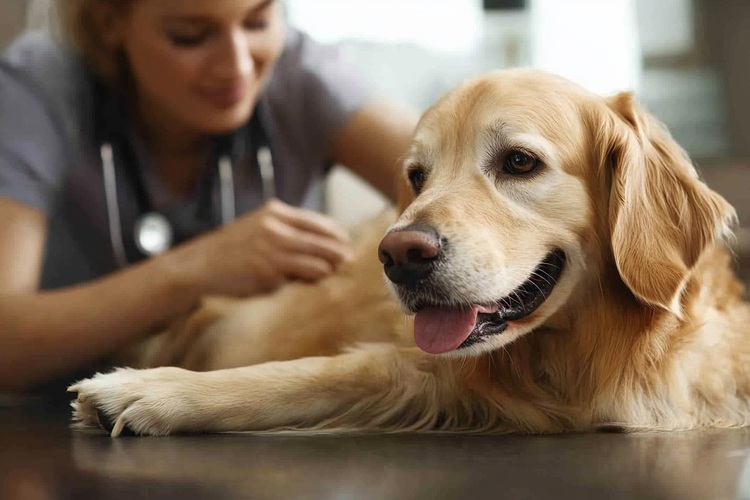Veterinarian Services: What Owners Should Know
Veterinarian services cover a wide range of care for companion animals, from routine vaccinations and wellness checks to surgery and emergency treatment. Understanding what these services include can help you make informed decisions for your pet’s long-term wellbeing, whether you have a dog, a cat, or another small animal.

This article is for informational purposes only and should not be considered medical advice. Please consult a qualified healthcare professional for personalized guidance and treatment.
What does veterinary care include?
Veterinary care spans preventive, diagnostic, and treatment services. Preventive care includes vaccinations, parasite control, dental checks, and routine exams to catch health issues early. Diagnostic work can involve blood tests, imaging (like X-rays or ultrasound), and lab work to identify underlying conditions. Treatment services range from medication management and minor procedures to complex surgery and hospitalization. Many clinics also offer behavioral counseling, nutritional advice, and end-of-life care to support pet owners through difficult decisions.
Veterinary practices vary in the services they provide; some focus on general practice while others specialize in areas such as orthopedics, oncology, or internal medicine. When seeking care, ask about after-hours support, emergency arrangements, and whether the clinic coordinates with specialty hospitals if advanced treatment is needed.
How to evaluate pet services in your area?
When assessing pet healthcare providers, consider qualifications, experience, and the clinic’s approach to care. Look for licensed veterinarians and support staff trained in handling animals safely and compassionately. Reviews and recommendations from other pet owners can highlight strengths and potential issues, but combine them with a visit to observe cleanliness, communication style, and how staff interact with animals.
Practical factors also matter: hours of operation, appointment availability, accepted payment methods, and whether the clinic offers telemedicine for follow-up questions. For ongoing care, continuity with a single vet can improve outcomes because the provider knows your pet’s history. If you have a specific breed or chronic condition, confirm the clinic has relevant experience.
Common healthcare needs for a dog
Dogs typically require a regular schedule of vaccinations (such as rabies and distemper), heartworm prevention, flea and tick protection, and routine wellness exams throughout life stages. Puppies need initial vaccine series and deworming, while adult and senior dogs benefit from regular dental care and age-appropriate screening for conditions like arthritis, dental disease, or metabolic disorders. Nutrition and weight management are frequent topics, as obesity significantly affects long-term health.
Behavioral evaluations are also common; issues such as anxiety, aggression, or house-training difficulties often prompt veterinary consultation or referral to a behaviorist. Preventive measures—microchipping, spay/neuter surgery when appropriate, and routine grooming—support a dog’s physical and social wellbeing.
Common healthcare needs for a cat
Cats often mask illness, so regular checkups are important to identify problems early. Core services include vaccinations (rabies and feline-specific vaccines), parasite control, dental assessments, and wellness exams to monitor weight, kidney function, and dental disease—conditions prevalent in older cats. Indoor-outdoor status affects risk factors; outdoor cats may need broader parasite protection and infectious-disease screening.
Because cats can be sensitive to clinic visits, ask about low-stress handling protocols and options for at-home or curbside care when possible. Nutrition guidance tailored to life stage and health conditions (like urinary tract issues or diabetes) helps manage chronic problems. Spaying or neutering reduces risks of certain cancers and behavioral complications.
Preventive healthcare and wellness plans
Preventive healthcare is cost-effective compared with treating advanced disease. Wellness plans often bundle vaccinations, routine exams, parasite control, and sometimes dental cleanings into one recurring payment, making it easier to budget for care. These plans emphasize regular monitoring, early detection through screening tests, and owner education on nutrition, exercise, and behavior.
Discuss with your veterinarian which preventive measures fit your pet’s lifestyle and risk profile. Factors like age, breed, and environment influence recommendations. For example, senior pets typically need more frequent exams and bloodwork, while highly social or boarding dogs may require additional vaccinations. Clear communication about expected outcomes and follow-up protocols helps align care with your priorities and realistic goals for your pet’s health.
Finding ongoing support and emergency care
Identify what constitutes an emergency for your pet and where to go outside regular clinic hours. Many areas have animal hospitals or 24-hour emergency centers that handle urgent cases requiring immediate intervention. For non-urgent questions, some clinics offer telemedicine or nurse lines to triage concerns and advise on next steps. Keep a current file with your pet’s records, medications, and a list of known allergies to speed care during urgent visits.
Coordinate care between your primary veterinarian and any specialists if your pet needs advanced diagnostics or surgery. Good communication among providers ensures consistent treatment plans and reduces the risk of conflicting recommendations. Local services that offer boarding or grooming with veterinary oversight can be helpful for pets with medical needs while owners are away.
Conclusion
Veterinarian services form a comprehensive network of preventive, diagnostic, and treatment options that support pet health throughout life. Understanding common procedures, what to expect from clinics, and how to evaluate local services helps owners make informed choices for dogs and cats alike. Regular preventive care and clear communication with your veterinary team are central to maintaining a pet’s quality of life and addressing health concerns promptly.






